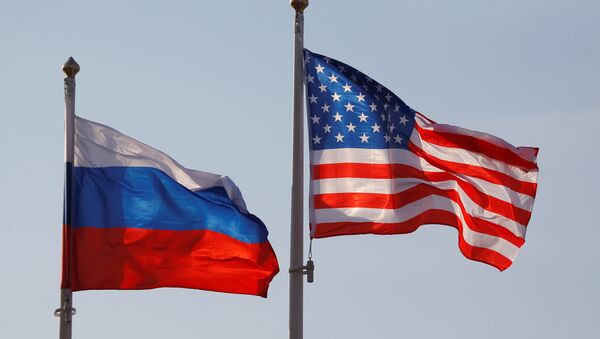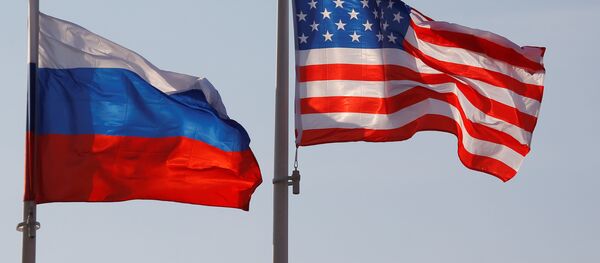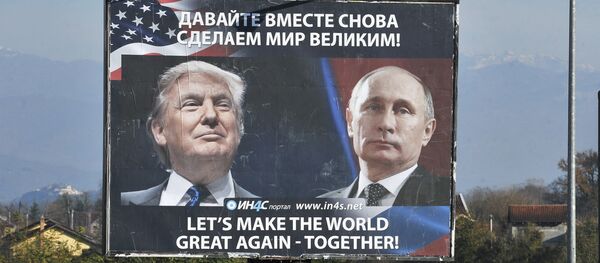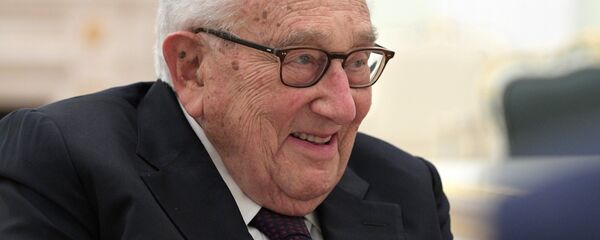The report said Russian leaders were also convinced the US had orchestrated the toppling of previous governments in Ukraine, Libya, Iraq and Kosovo that defied Washington and had also fostered earlier revolutions in Ukraine, Georgia and Kyrgyzstan.
Later on Thursday, Kremlin spokesman Dmitry Peskov confirmed that the Russian government believed there was substance to the charge that the US government was actively seeking regime change in Moscow.
RUSSIAN CONCERNS ON US POLICY ‘NOT UNWARRANTED’
University of Rhode Island Professor of Peace Studies Nicolai Petro told Sputnik on Friday that the Russians had solid, documented evidence to support their concerns.
"The DIA suggests that the source of tensions with Russia is the unwarranted Kremlin fear of American objectives. To anyone familiar with European analyses of American foreign policy, however, such fears do not seem unwarranted," he said.
Far from being a fantasy that was only entertained in Moscow, these concerns were widely shared throughout Europe, Petro pointed out.
"Indeed, I would even say that for most left-of-center politicians in Europe, and even some on the right, America's desire for regime change within Russia seems obvious," he said
On June 20, the Trump administration announced new economic sanctions targeting businesses and individuals alleged to be supporting the Russian government and arms industry
Both Republican and Democratic senators have expressed confidence they could repass the bill with two-thirds majorities in both the Senate and the House of Representatives to over-ride any veto of it by President Donald Trump.
By taking such actions, US politicians were recklessly confirming the worst fears about them among Russian policymakers, Petro cautioned.
"What are American leaders doing to assuage those unwarranted fears? They are prolonging or even initiating new sanctions on Russia, without regard to any actual actions taken by Russia," he said.
The wave of unsubstantiated allegations claiming Russian had intervened to successfully decide the 2016 US presidential election lacked any factual evidence. But it was adding to the buildup of tensions between the thermonuclear superpowers, Petro warned.
"They are accusing Russia of interference in US elections (‘an act of war,’ according to some congressmen) without providing any actual evidence," Petro recalled.
Annex B of the January 6, 2017 "CIA/FBI/NSA Assessment: Russia’s Influence Campaign Targeting the 2016 US Presidential Election" acknowledged the lack of hard evidence for this claim.
"Judgements are not intended to imply that we have proof that shows something to be a fact," that joint assessment acknowledged.
US leaders also regularly criticized and sought to penalize any European leader that spoke out for or actively sought constructive relations with Russia, petro added.
"They openly array themselves against European politicians who wish to improve relations with Russia," he said.
The DIA report was an attempt to acknowledge the embarrassing reality of the US drive to replace the Russian government while blaming Russia for recognizing it, and trying to use that response to win more funding from Congress to intensify the super-hawk strategy, Petro maintained.
"This suggests that all the DIA report has done is to state the obvious about US foreign policy, and, by presenting it as a Kremlin plot, provide a justification for additional funding to combat this plot," he said.
ANTI-RUSSIA SANCTIONS BACKFIRING AGAINST US
However, the US policy of economically targeting Russia was backfiring already in Europe, where major companies and economies were paying the price for the loss of business with Russia, noted political commentator, philosopher and University of Louvain Professor Jean Bricmont observed.
"I expect the sanctions to backfire; the Europeans are losing money in that and they aren’t happy about it, especially the German," he said.
In his most recent direct line broadcast with the Russian people, President Vladimir Putin that the Russian economy was registering healthy growth as domestic manufacturing surged to meet the demand caused by the reduction in foreign imports generated by Western, US-led sanctions.
Western policymakers and politicians in Congress refused to recognize that the decision by the people of Crimea to return to Moscow was strongly supported throughout Russia and had boosted Putin’s popularity, Bricmont recalled.
"Certainly Crimea is not going to be returned to Kiev, no matter what. The Crimeans don’t want that and the Russians are strong enough to prevent it being taken by force," he said.
Instead of isolating Russia, the moves pushed through Congress against Russia were isolating the United States instead, Bricmont remarked.
"The US Congress wants to keep the sanctions, but they simply alienate much of the world from the United States in doing so," he said.




